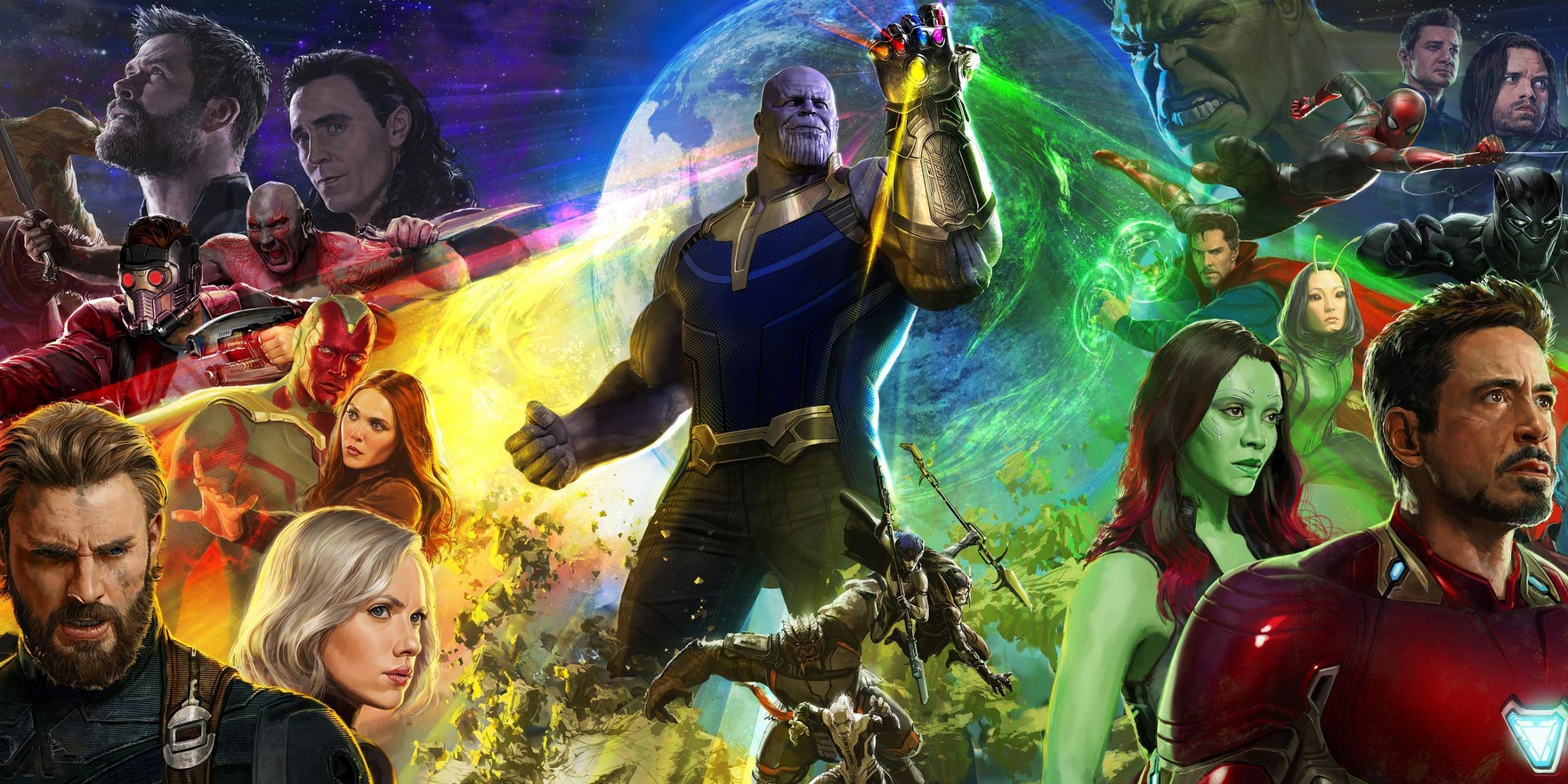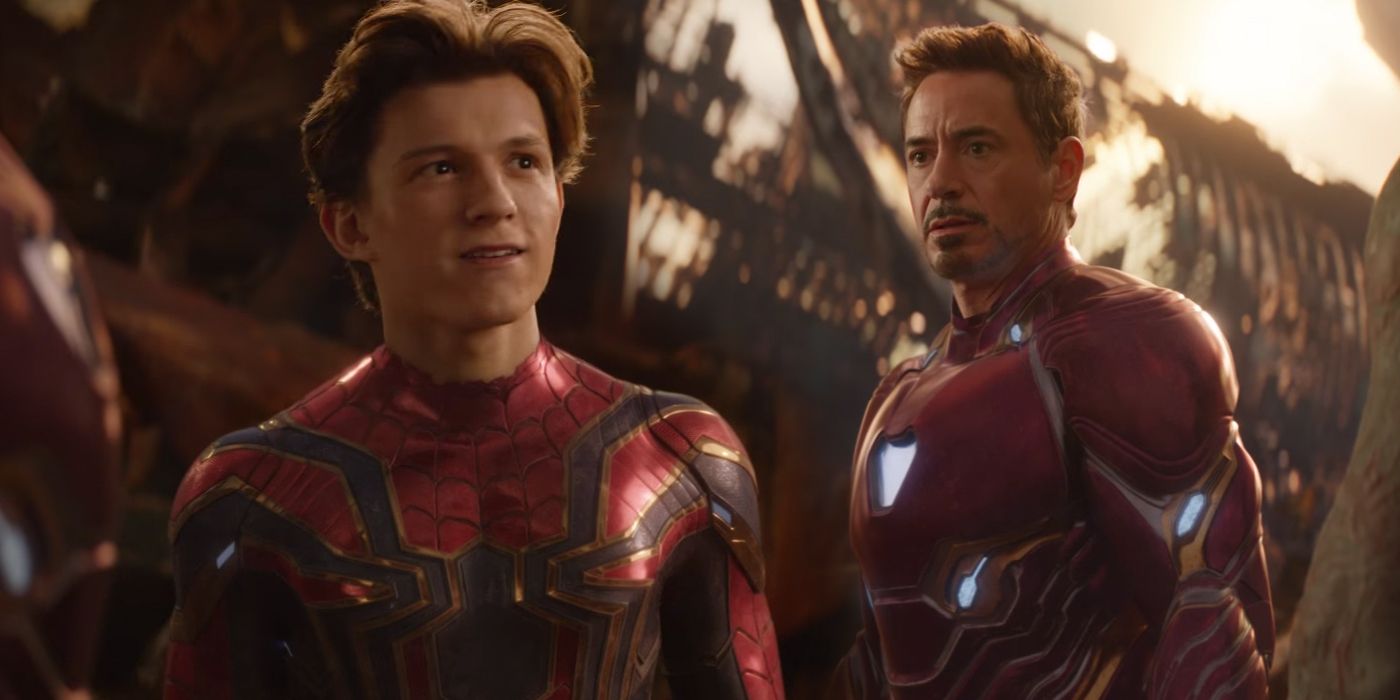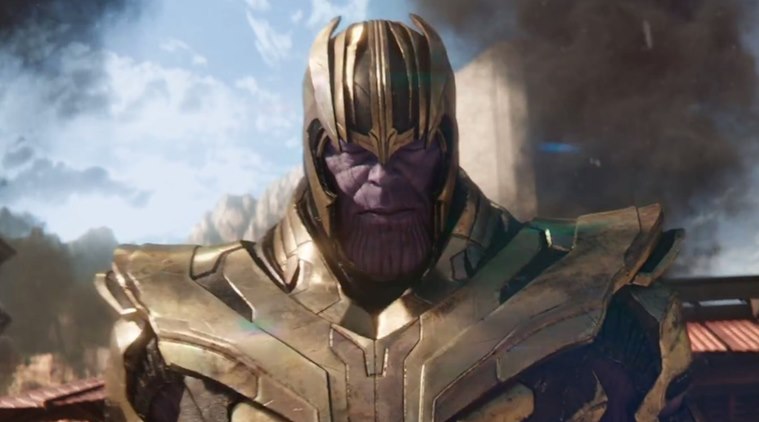
Full Spoilers ahoy. You have been sufficiently warned as though you wouldn't go see it anyway.
I’m not usually one for spoiler talks.
Typically all I have to say about a movie’s quality is
fairly contained within the spoiler free review, if I’m going to revisit a film
for extensive discussion, I prefer to do it within a grander context on the
nature of storytelling in media, hence the numerous series running at any given
time on Crit. Hit and above all else, I have a general dislike for the very
notion of spoiler sensitive culture in general.
Nine times out of ten, if spoiling the events of a story
ruin it for you, you should probably reevaluate the way you process
storytelling, or the product in question wasn’t particularly good to begin with.
The other off beat occasion is usually prefaced as such by those with common
sense but I digress.
In this particular instance however, while I stand firmly
and confidently by my original review, the nature of “Averngers: Infinity War’s”
secretive marketing tactics actually do pay off in manner that I couldn’t quite
encompass in a review meant to keep things secret that absolutely needed to be
obscured in mystery for full effect.
Now that the world has had at least 4 days to a week to see
what all of the hype is about, I no longer need to keep my tongue held.
Character and Mythology Arcs

The key to the Marvel Cinematic Universe’s success has
always been its ability to produce and develop strong and likable characters that
you want to see grow individually and play off of one another.
It’s why the crossovers work so effectively and why the
overstated “villain problem” of the franchise is nowhere near as big of a deal
as its detractors would like audiences to believe so of course much of what
makes “Infinity War” such a homerun is the way its personal narratives
complexly operate using the franchise’s history as pillars to show off just how
far its cast has come.
Tony Stark’s insistence on keeping a few Iron Man suits
around “for protection” despite Pepper’s insistence to let them go from his
home so that they can finally build a life together gains a whole new level of
sorrowfully tragic when you factor in just how much of this guy’s narrative has
been about grappling with his own mortality while accepting that there are
forces out there more powerful than him and his suit.
The obsession he grows with stopping Thanos personally becomes
even more poignant when you remember that after being haunted by the Chitauri
invasion on New York in “The Avengers” for years in ways that his character has
been permanently impacted by, he finally has a face to associate all of that
pain and baggage with that needs to be eliminated for the greater good of the
universe.
It’s that key attention to detail that really enhances a
masterfully directed production into something even greater than it might have
even meant to be and the film is absolutely littered with it; the Guardians of
the Galaxy deciding to take a noble course of action in their introduction but
still owning up to being the scoundrels introduced in their debut feature,
Steve Rogers jumping in to help his friends without a second thought to consequence
or capture that has firmly defined his character since his own debut feature,
despite having had to reject the Captain America mantle, and even
subtlties like the implications of
Hawkeye and Ant-Man taking plea deals and house arrest after having extensively
seen what their family lives are like in previous films.
Nowhere is this most prevalent than with Bruce Banner and
the Asgardians.
We’ve watched Bruce Banner go from unethically guinea
pigging himself to serums and suicide attempts to be free of an animalistic part
of himself, to accepting and sharing his body with a fully developed split
personality that’s grown its own agency and is stubborn enough to potentially
let Banner die than act. What spurs this on may be as of now unknown but it’s
worth noting that the film opens with the apparent death of his close friends
gathered across his adventures with Thor, after facing his first true defeat in
battle at Thanos’ bare hands.
All of that collective history is also what gives Loki’s
death so much impact, finally becoming the first character to come full circle
from their first appearance.
Letting the meat of all of their development go however, it’s
also what makes the movie so damn fun to watch in ways you both expected and
didn’t. Rocket Raccoon’s desire to steal Bucky’s arm is priceless, If Thor
doesn’t become an honorary Guardian of the Galaxy eligible for an appearance in
the upcoming third movie, I’ll be sorely disappointed, Doctor Strange and Iron
Man’s cattiness towards one another considering where they both came from is a
hoot, and the revelation of what exactly happened to The Red Skull at the end
of “Captain America: The First Avenger” is unquestionably going to be the
cinematic highlight of my year.
While it’s easy to dismiss the referential nature of the
film as a flaw, it not only benefits the movie by having a mythology and
setting that feel truly alive and lived in but would also be counter intuitive
to the context that the movie intentionally invites.
Some may see an 18 film investment as taxing but considering
their gradual rollout over the course of a decade and the nature of the
internet age removing any obfuscation surrounding their content and
availability, being out of the loop really just isn’t a valid criticism anymore,
especially when the individual series’ producing the whole can be easily viewed
as independent of its other concurrently running films if the overview seems
intimidating.
To complain about needing to watch previous movies as catch up
for this one holds about the same clout as complaining about lack of context in
the season finale to a show that you didn’t bother to watch from season
premiere to finish.
Thanos

Taking advantage of the meaty character development and
mythological context established by a decade of theatrical releases and
television shows, the absolute best decision that the Russo Brothers could have
possibly made for “Infinity War” was to focus on developing the aspects that
weren’t firmly pre-established and to put that development front and center.
What makes Thanos one of the best characters of the entire
franchise, much less the single best villain is that while his actions speak
for themselves and are reinforced by his brutal demeanor and unwavering
dedication to his destructive cause, he is nevertheless treated as three
dimensional character first with wants and needs not always in alignment.
“Infinity War” is able to take for granted the love that the
audiences carry for its heroes and their wellbeing so that it can comfortably
place him at the forefront of the production as its protagonist.
Encapsulating this to perfection is the trial of the Soul
Stone in which he must sacrifice the life of Gamora, whom he genuinely and
convincingly loves as a daughter and is highlighted by being the only living
creature that he shows true affection to onscreen despite further implications
seeded about that he cares for his personal henchmen.
“Star Wars Episode VIII: The Last Jedi” was a film with many
problems but in similar vein, one of the best things that it executed was its
portrayal of Kylo Ren as the ultimate villain of the movie resolute in whatever
course of action gets him to his own toxic and self destructive safe space but
ultimately brimming with regret and self hatred regarding what he has given up
to achieve what he has. Will he stay the course or will he redeem himself? I don’t
know but at the heart of such a fantastical setting and journey, he
demonstrates the widest range of human emotion for the most compelling of
reasons.
Similarly, Thanos undergoes a full journey and character arc
that most of the film’s heroes have had to undergo over the course of several
sequels, and lands it with the most emotional impact of the franchise, both due
to how powerful Josh Brolin’s astonishing performance is and the place that the
stakes end the adventure on regarding its emotional gut punch of an ending.
The Ending

Simultaneously one of the film’s best aspects and the solely
sobering reason I had to dial back my glee to give the film a less than perfect
score, Infinity War’s somber ending, which sees Thanos apparently winning his
grand conflict against the heroes, uniting the Infinity Stones and rewriting reality
to erase half of the universe’s existing population, which includes a sizable
portion of the superheroes we’ve gotten to know of the course of the last 10 years.
This bleak outcome, ending on a mildly content Thanos
watching the dawn of a new age born from his handy work is quite possibly one
of the absolutely boldest moves that the MCU has made since torpedoing SHIELD
due to Hydra corruption as a film twist during production of SHIELD focused
television show meant to expand the franchise’s reach into television.
It’s sobering, beautiful, emotional, and a true testament to
how amazing the 10 year ride has been and how absolutely worth it the ride has
been as well as utterly jaw dropping in its sheer audacity to somehow redefine
the textbook definition of crowd pleasing cinema only to pull a bait and switch
that some experimental indies would contextually struggle with. However,
despite not sinking the ride of a lifetime that the film undoubtedly is, it
doesn’t all quite work.
Namely, while the shock and impact of the loss is sold
stupendously, the choices for which heroes were impacted leave little wiggle
room for the fact that a great many resurrections are inevitable, not the least
of which are made obvious due to at least 2 of the heroes having confirmed
sequels and one of the recently joining the billion dollar box office club
guaranteeing his sequel even if his film wasn’t one of the cultural highlights
of the year thus far.
With the actions occurring destined to be undone practically
telegraphed, the ending also plays into the biggest issue with viewing “Infinity
War” as its own experience. That issue being that it really isn’t meant to be
viewed as the finale.
Although I never fully bought into the convenient excuse of “Infinity
War part 2” being developed into its own strong and capable stand alone story
as justification for its name change, the reveal of this ending makes it more
obvious than ever that this is only one half of an incomplete story yet to see
completion, and while it’s a portion with more than enough bang for the buck to
be enjoyed, I can’t cut slack for a blatant deception of marketing that wasn’t
the clever subterfuge of secret knowledge that the rest of movie succeeded at
being so much as bold faced clumsy lie.
What specifically undercuts it is that the mere selection of
heroes is what could have made all the difference. Not even a simpleton expects
the deaths of Peter Parker, T’Challa, and 90% of the Guardians of the Galaxy to
stick but what if those deaths instead went to the founding members of the
titular team whose contracts are mostly expired, or better yet give some of the
television characters the dissolve in cameos.
Vaporize Daredevil, Jessica Jones, and maybe one or two of
the Runaways before restoring the status quo by next year as long as they’re
off season, allowing you to bring the whole experiment full circle on both ends
of the media spectrum.
Perhaps uniting the television division with the film events
is simply wishful thinking but by choosing the heroes not guaranteed for
return, things probably could have ended on a more genuine note even if “Part 2”
is an undeniable reality.
In any case, “Infinity War” is still fantastic and I await form
its sequel takes with bated breath.
No comments:
Post a Comment